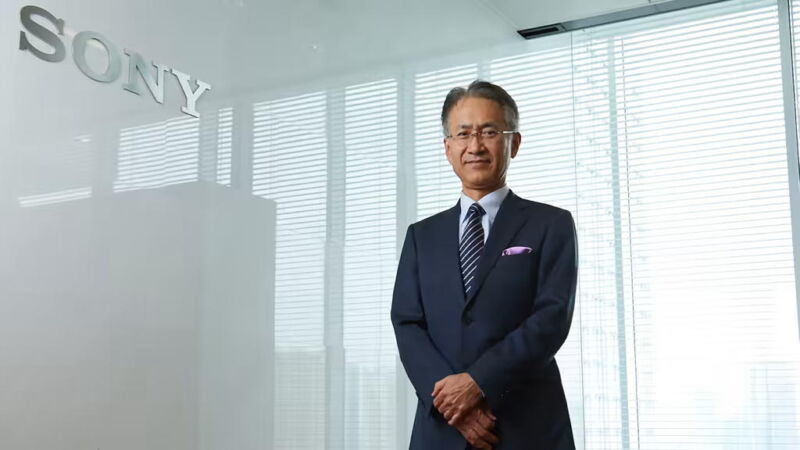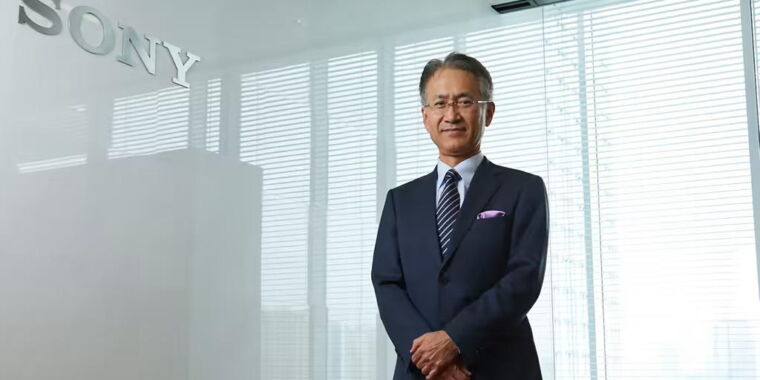
Tokuyuki Matsubuchi via FT
Sony’s CEO has warned that cloud gaming is still “really tricky” technically, minimizing the risk for the industry’s console maker to quickly move to a technology on which its rival Microsoft has bet heavily.
In an interview with the Financial Times, Kenichiro Yoshida said the PlayStation maker would continue to study “various options” for streaming games over the internet itself in the future, adding that it could use GT Sophy, its artificial intelligence agent. use to improve cloud gaming.
“I think the cloud itself is a great business model, but when it comes to games, the technical issues are big,” says Yoshida, citing latency—the fast response times gamers demand—as the biggest issue. “So there will be challenges to cloud gaming, but we want to meet those challenges.”
Despite several attempts to reshape the gaming industry in the cloud, many users have yet to switch from a console or high-end gaming PC to streaming games entirely over the internet for fear of delays that can be caused by slow internet connection and server speeds.
Publishers have also not fully supported. In January, Google shut down its streaming service Stadia after most game producers failed to make their top titles available on the platform.
The promise of cloud gaming has still not been fulfilled after more than a decade of development. Sony was one of the first major companies to enter the market, having acquired cloud gaming company Gaikai for $380 million in 2012 and later its rival OnLive’s technologies.
While it launched a cloud gaming subscription service in 2014 that is now integrated with its upgraded and expanded PS Plus Premium service, analysts say Sony hasn’t capitalized on its early bet to establish itself as a leader in the field.
Yoshida also pointed out the costly inefficiency of cloud gaming, where servers sit idle for much of the day before dealing with the heavy traffic of nighttime or “dark time” gamers. He added that Sony had responded by letting go of GT Sophy in the quiet hours to learn how to beat human competitors in the car racing simulator. Gran Turismo.
“The dark age of cloud gaming was a problem for both Microsoft and Google, but it made sense for us to use it [quieter] hour for AI learning,” said Yoshida, speaking at the company’s headquarters in Tokyo.
He declined to comment on the impact Sony expects from Microsoft’s agreed acquisition of publisher Activision, the company behind the acquisition. Duty And World of Warcraft game franchises, who said regulatory revisions continued.
But the deal has rocked the global gaming industry, where the American software company is locked in a cutthroat battle with Sony for console gaming dominance.
Industry and regulatory concerns focused on whether Microsoft would make Activision’s games exclusive to its own cloud gaming service, a move that could potentially accelerate the shift away from consoles.
Last month, the UK’s competition regulator blocked the acquisition, concluding that the acquisition would reinforce Microsoft’s dominance in the burgeoning cloud gaming market. According to Microsoft, the Xbox Cloud Gaming service has more than 20 million users.
However, regulatory response was mixed, with EU regulators approving the purchase on the basis that Microsoft had made concessions to address its concerns.
If it goes through, the deal would make Microsoft the third-largest gaming company by revenue, behind China’s Tencent and Sony.
© 2023 The Financial Times Ltd. All rights reserved. May not be redistributed, copied or modified in any way.

